Lockheed’s F-94 Starfire was a second generation jet interceptor that saw use in Korea, and was the first production American plane to have an afterburner.
Gallery:




Features:
- Recreated with blueprints
- United States Air Force livery
- Fairly realistic performance
- A cool cockpit that should be VR compatible
- Four nose mounted M3 Browning machine guns
Nonstandard Controls:
- AG 1 Nose Steering
- AG 2 Air Brake
- Throttle>95%% for Afterburner
- VTOL for flaps
- Trim for trim
Notes:
- Thanks @ChiChiWerx for the USAF roundels
- Thanks @EZkel for the original gunsight
Background:
Development of the F-89 Scorpion was not going well, and in the meantime, the USAF was getting anxious about not having an interceptor capable of matching the performance of the Tu-4 and other new Soviet bombers. The decision was made to procure an interim aircraft; something less ambitious that could be quickly and cheaply produced until the F-89 was available. The Air Force looked to Lockheed, and they offered a modified version of their T-33 trainer. The first F-94 flew just months after the contract was awarded.
The F-94 was planned to be a T-33 trainer fitted with armament and a fire control system, including radar from the tailgun of the B-36. With the additional weight, however, the aircraft was found to be underpowered. A more powerful engine was chosen, but it was larger and required redesign of the fuselage and air intakes. The F-94 was the first production American aircraft to feature an afterburner. The C model was also the first production American fighter to feature a drogue parachute. Performance was found to be adequate, certainly superior to the P-61 and F-82 fighters it replaced in service. The B variant featured improved avionics and reliability, and was the final version to be armed with machine guns before the C model switched to a rocket-only armament.
The Starfire saw use in the Korean War as a night fighter. Initially restricted from flying over enemy airspace due to its sensitive radar that could be scavenged if it crashed, it was only used to protect air bases from hostile bomber attacks. But as B-29 losses mounted, this restriction was eventually lifted and the F-94 flew escort missions for the Superfortresses. The F-94 scored a handful of aerial victories, including against the MiG-15. Embarrassingly, the F-94 became the only fighter jet in history to lose a dogfight to a biplane when one Starfire slowed down too much while attempting to shoot down a Po-2, stalled out, and crashed.
Introduced in 1950, the Starfire was out of frontline USAF service by 1954, replaced by more capable interceptors. It remained in use by the Air National Guard for a time longer, being retired in 1959. Although not in use for long, the F-94 performed its role well enough. No F-94B survives today, although several A and C models are in museums throughout the U.S.
Specifications
Spotlights
- This craft is curated
- ChiChiWerx 3.2 years ago
- asteroidbook345 3.2 years ago
- EngieWeeb 3.2 years ago
- Sparky6004 3.2 years ago
- HeavyC22 3.2 years ago
- TatsuTheOtaku 3.2 years ago
- TheGoldenEagle55 3.2 years ago
- TheCommentaryGuy 3.2 years ago
General Characteristics
- Successors 6 airplane(s) +92 bonus
- Created On Windows
- Wingspan 41.3ft (12.6m)
- Length 40.3ft (12.3m)
- Height 14.7ft (4.5m)
- Empty Weight 8,126lbs (3,686kg)
- Loaded Weight 13,346lbs (6,053kg)
Performance
- Power/Weight Ratio 0.782
- Wing Loading 51.8lbs/ft2 (252.9kg/m2)
- Wing Area 257.7ft2 (23.9m2)
- Drag Points 900
Parts
- Number of Parts 348
- Control Surfaces 5
- Performance Cost 1,591

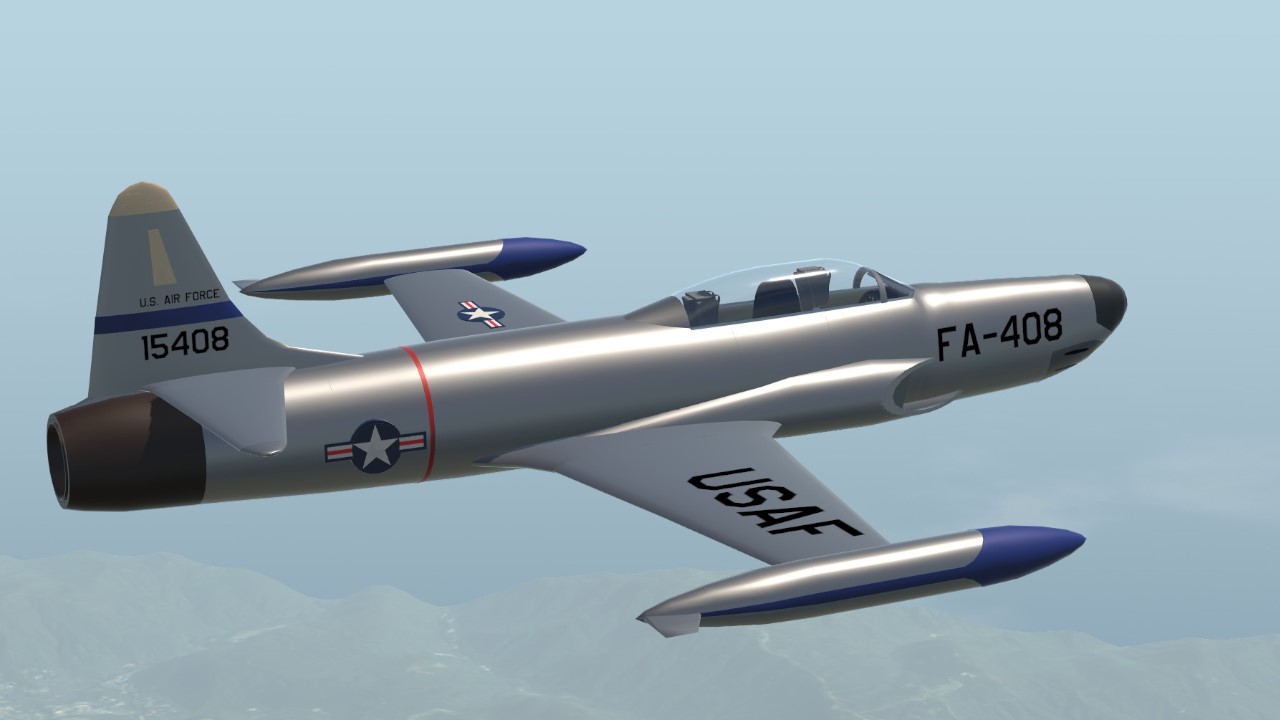
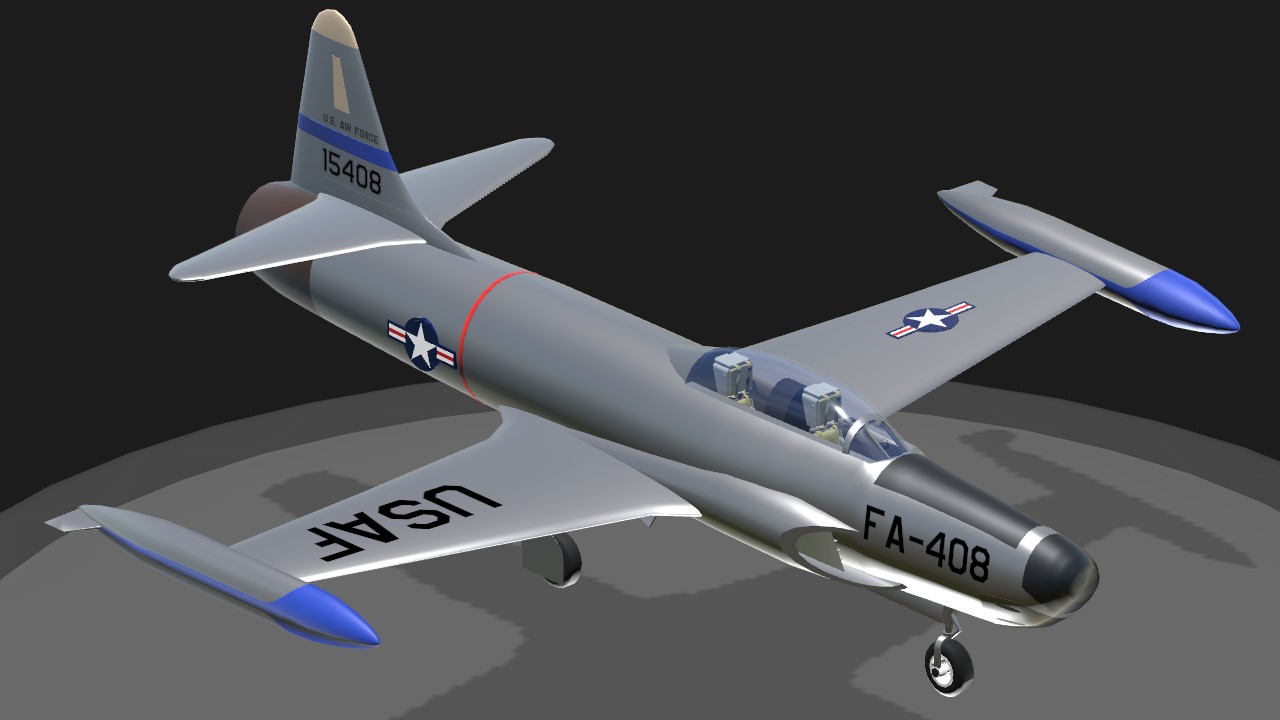
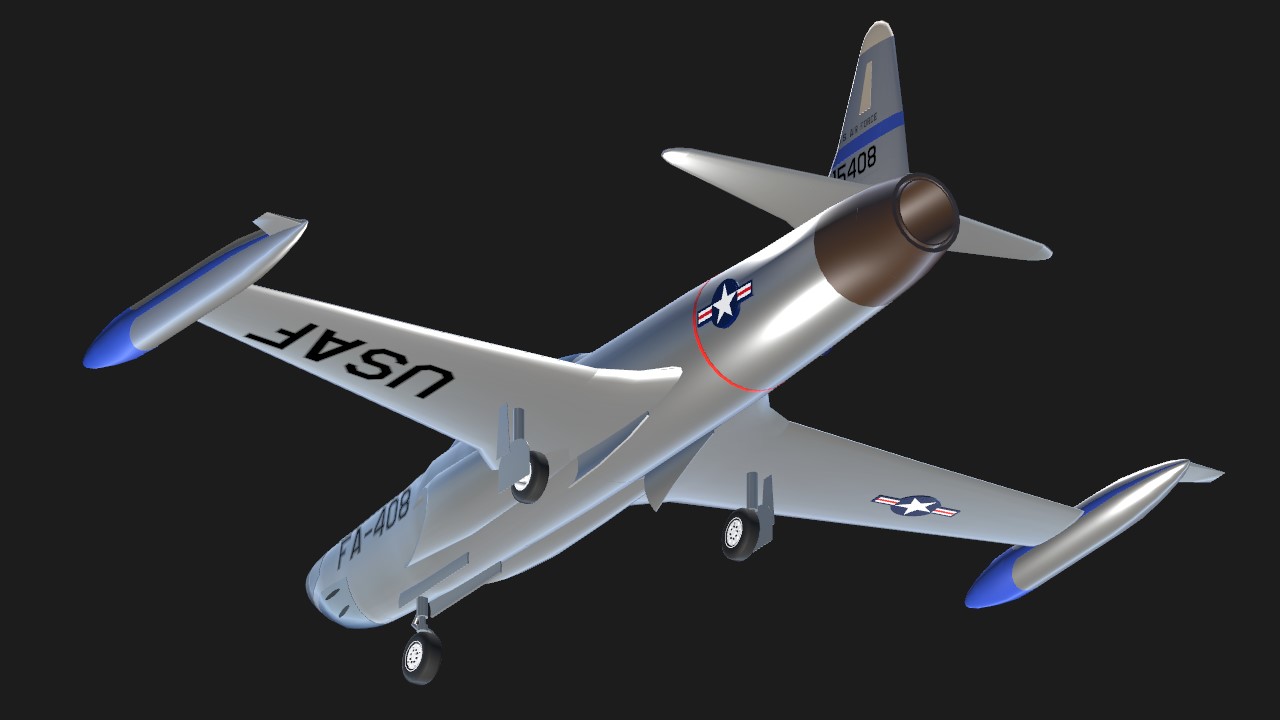
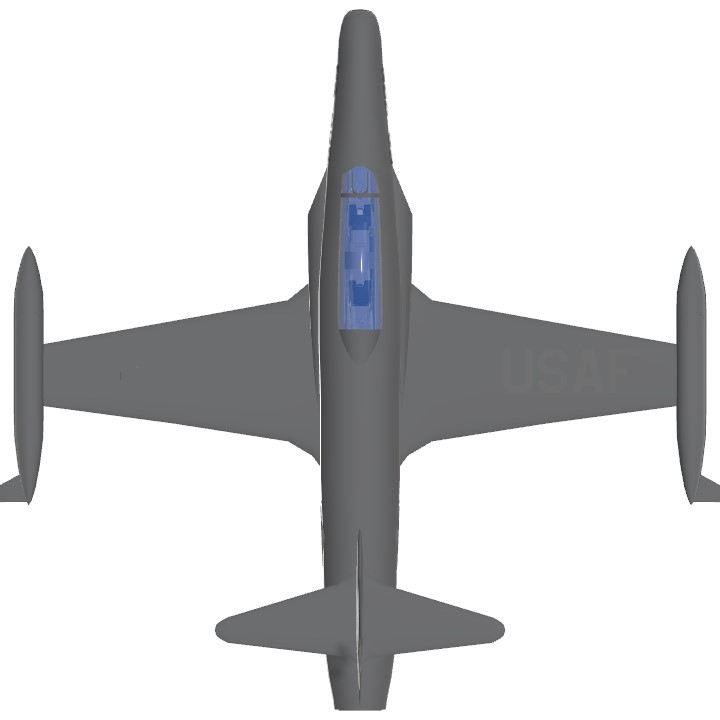
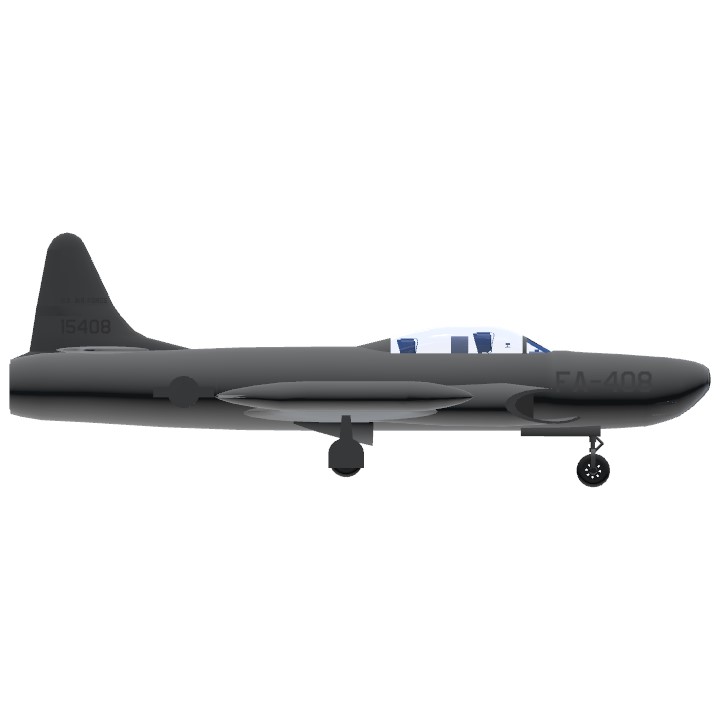
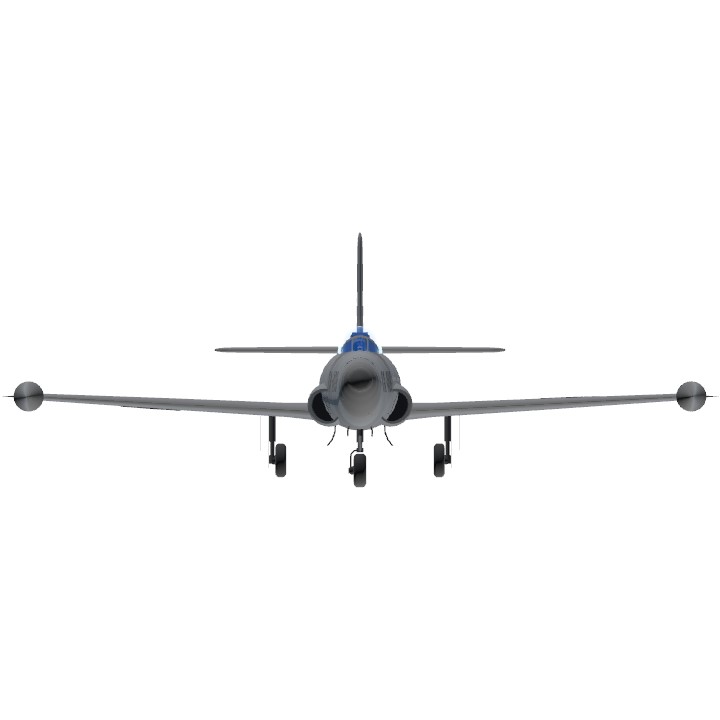
Didn't this get destroyed by a Po-2?
Saw one of these at West Memphis Airport!
its this fucking plane that got finessed by a Po-2
@WarHawk95 Sort of. The C variant was the first to be named Starfire, but upon its introduction, the name seems to have been applied retroactively to all variants. At least, according to Aircraft Recognition Manual Supplement No. 6 FM 30-30, December 1956.
(Fun ?) Fact : the name "Starfire" only applies to the F-94C.
This one is just a F-94B.
Very nice…I’m a big fan of this era, which I feel can be accurately modeled within SP. If I were to make any suggestions, I would suggest the trim have more nose up authority. Full trim on your model only begins to be effective at around 325 KIAS, it really ought to be effective as low as you can get it or even as low as stall speed…because that’s more accurate to RL. But performance is in the ballpark and it’s super fun to fly, particularly when gunning targets out of the sky.
Wow it looks really clean I like it!
Was building one of these a long time ago and never finished it, but it looks nice!